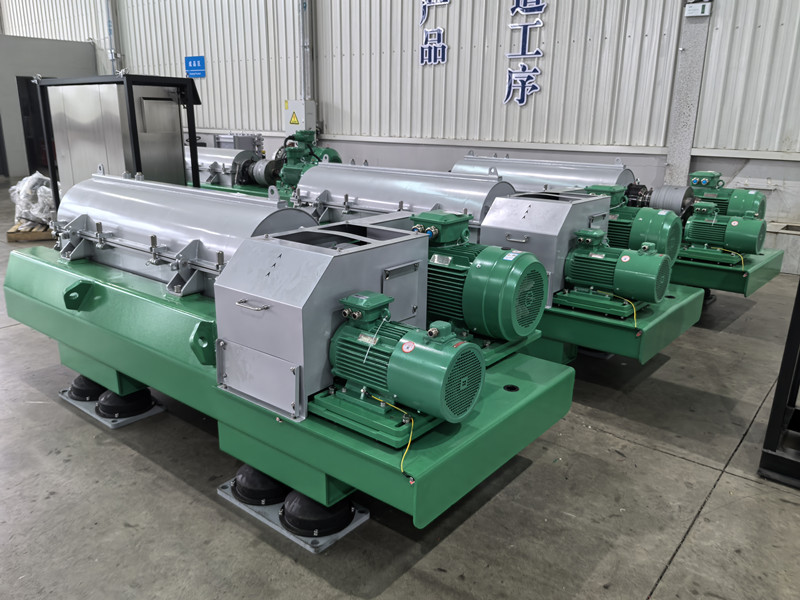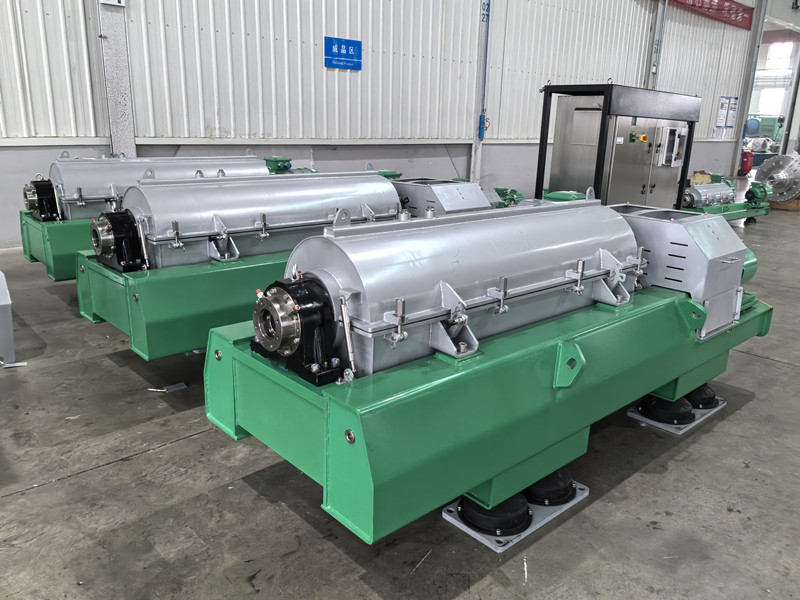This week, GN Separation completed the assembling of a batch of GNLW364 decanter centrifuges, destined for shipment to an overseas pharmaceutical facility to support its wastewater treatment operations. This delivery underscores GN’s commitment to providing tailored separation solutions for the global pharmaceutical industry’s evolving environmental needs.

The Indispensable Role of Decanter Centrifuges in Pharmaceutical Wastewater Treatment
Pharmaceutical production processes generate highly complex wastewater matrices, characterized by a diverse mix of organic solvents, heavy metal ions, residual active pharmaceutical ingredients (APIs), and biological contaminants. These streams pose significant treatment challenges due to their variable composition, high chemical oxygen demand (COD), and strict regulatory discharge requirements. Decanter centrifuges emerge as a cornerstone technology in addressing these challenges, utilizing high-speed centrifugal force to achieve efficient solid-liquid separation—even for feed streams with fluctuating particle sizes, solid concentrations, and viscosities.

For the pharmaceutical industry, where precision, reliability, and compliance are non-negotiable, decanter centrifuges deliver multifaceted value. Beyond reducing sludge volume by up to 90% and ensuring compliance with global environmental standards, these systems enable the recovery of reusable process water and valuable byproducts (e.g., residual catalysts or active compounds). This aligns seamlessly with circular economy principles, transforming wastewater treatment from a cost center into a sustainability enabler.
Core Advantages of GN’s GNLW364 Decanter Centrifuge for Pharmaceutical Applications
GN Separation’s GNLW364 series is purpose-engineered to meet the pharmaceutical industry’s rigorous demands for performance, durability, and operational flexibility. Three key technical features distinguish this solution:
1. Duplex Stainless Steel 2205 Construction: Corrosion Resistance & Structural Integrity
The centrifuge bowl and screw conveyor—critical components subjected to high mechanical stress and chemical exposure—are fabricated from duplex stainless steel 2205. This material exhibits exceptional corrosion resistance (exceeding that of 316L stainless steel) and superior mechanical strength, making it ideal for handling acidic, alkaline, or solvent-laden pharmaceutical wastewater. Employing centrifugal casting technology ensures uniform material density and eliminates internal porosity, enabling the bowl to maintain precise balance even at maximum rotational speeds (up to 3,600 rpm), thus minimizing vibration and extending service life.
2. Tungsten Carbide Reinforcement: Abrasion Resistance for Long-Term Reliability
The screw conveyor’s blade edges—prone to wear from abrasive particles (e.g., silica, undissolved salts, or catalyst residues) in pharmaceutical wastewater—are fortified with tungsten carbide plates and a spray-welded tungsten carbide coating. With a hardness rating second only to diamond, tungsten carbide provides exceptional resistance to erosive wear, reducing blade degradation by up to 80% compared to conventional materials. This design significantly lowers maintenance frequency, reduces downtime, and optimizes total cost of ownership (TCO) for pharmaceutical operators.
3. Triple Variable Frequency Drive (VFD) Control: Adaptive Operation for Dynamic Feed Conditions
Pharmaceutical wastewater composition often varies with production batches, requiring flexible treatment systems that can adapt in real time. The GNLW364 integrates a triple VFD control system, enabling independent regulation of three critical parameters: bowl rotational speed, differential speed between the bowl and screw conveyor, and feed pump flow rate. This level of control allows operators to fine-tune separation efficiency for diverse feed conditions—from high-solids sludge (up to 15% solids content) to low-turbidity effluent—ensuring consistent water quality and solids recovery performance across production cycles.
Driving Sustainable Transformation in Pharmaceutical Manufacturing
Against the backdrop of tightening global environmental regulations and the pharmaceutical industry’s growing commitment to sustainability, the GNLW364 decanter centrifuge represents a synergistic blend of advanced materials, wear-resistant technology, and intelligent control systems. By enabling efficient pollutant removal, resource recovery, and energy optimization, GN’s solution empowers pharmaceutical companies to reduce their environmental footprint while enhancing operational efficiency. As a trusted partner in separation technology, GN Separation continues to innovate, supporting the global pharmaceutical industry’s transition toward cleaner, more sustainable manufacturing practices.